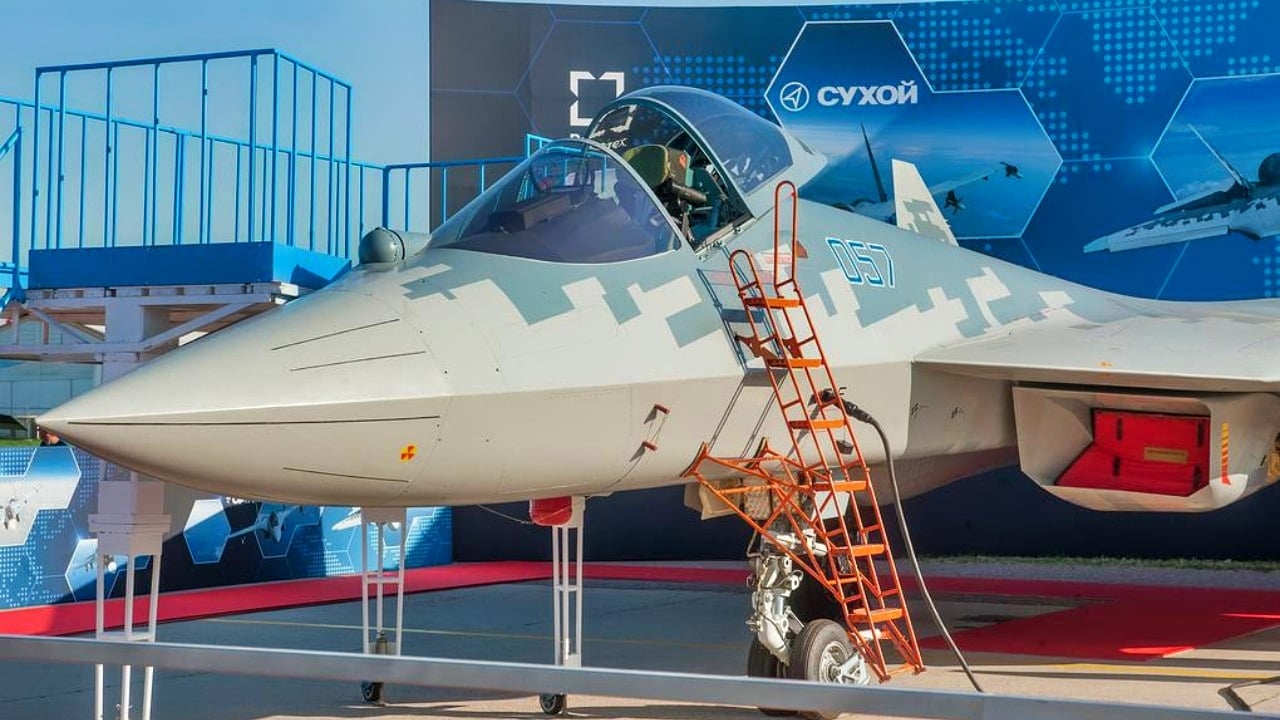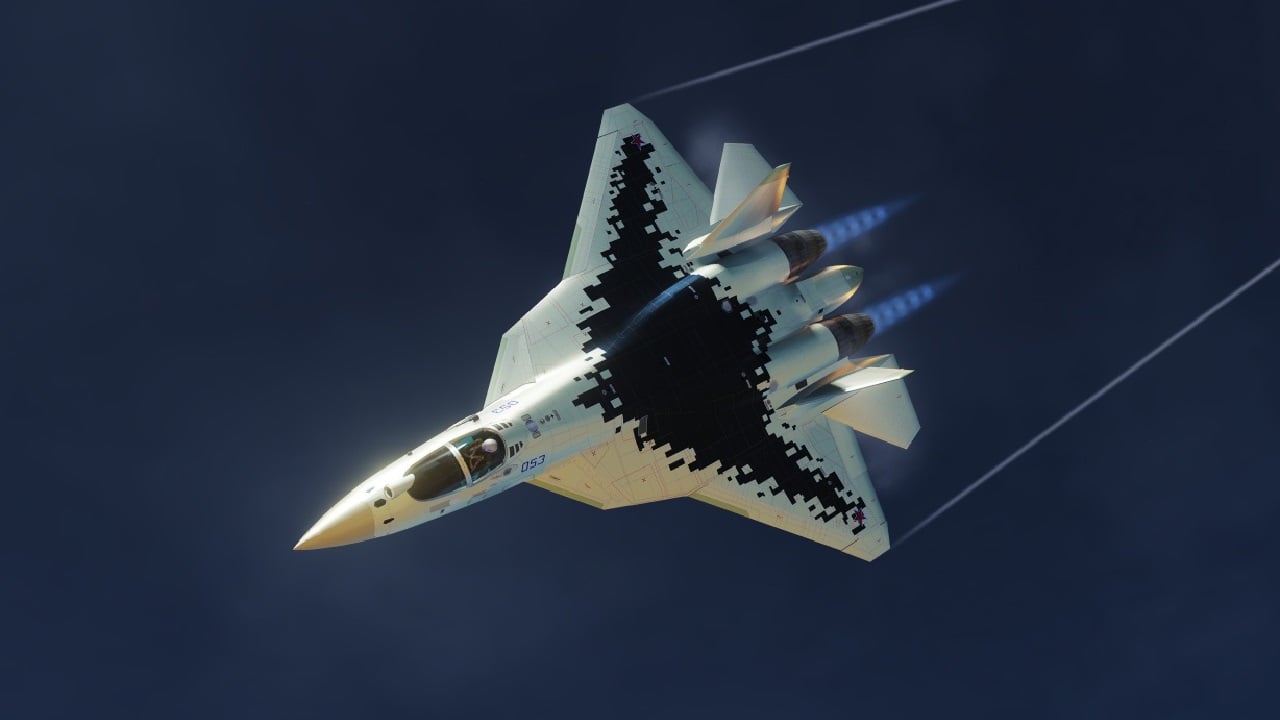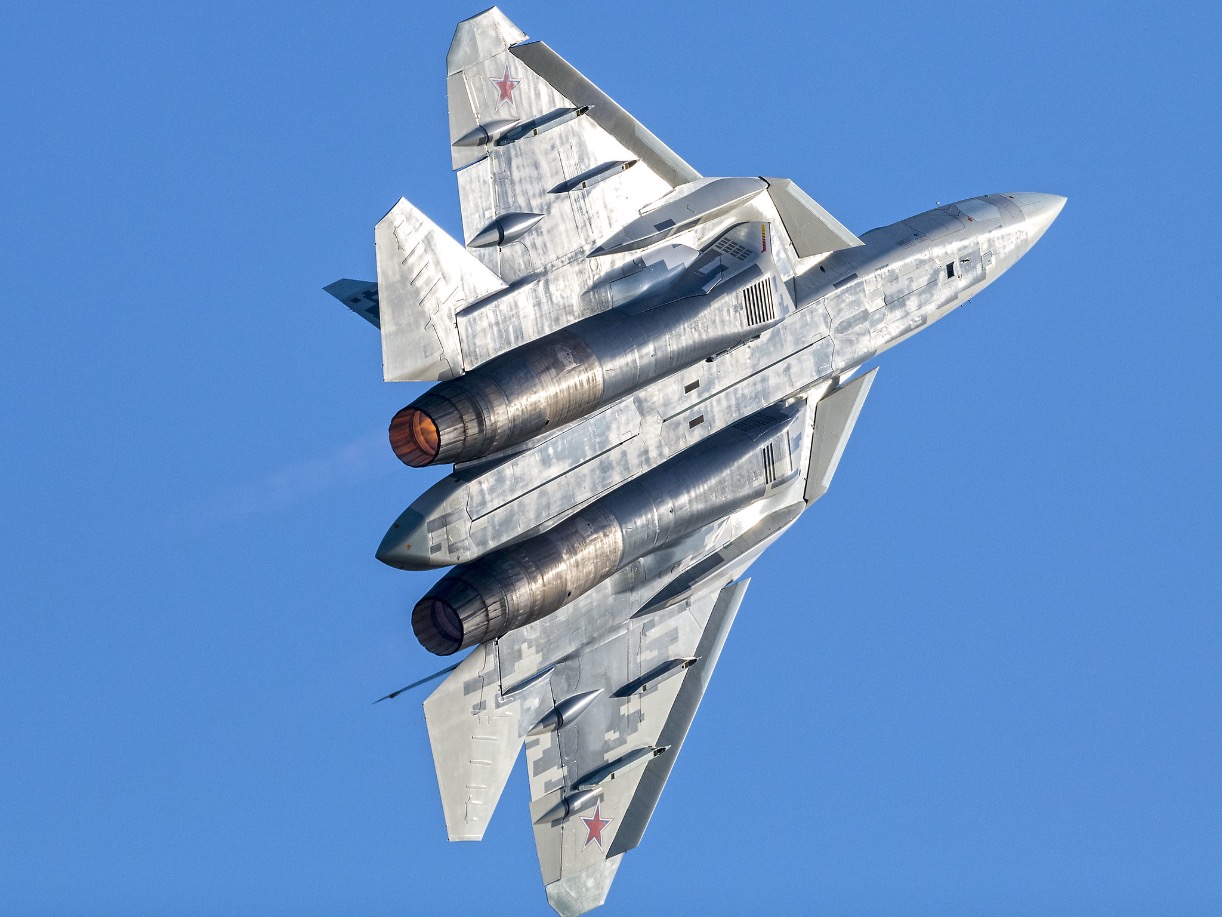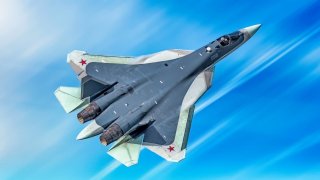F-35 Stealth Fighter vs. Russia's Su-57 Felon: Who Wins Head-to-Head?
While an F-35 vs. Su-57 showdown may remain hypothetical, the F-35’s operational maturity gives it a clear advantage.
What You Need to Know: As U.S.-made F-35 Lightning II jets demonstrate effectiveness in global operations, experts speculate how they’d perform against Russia’s Su-57, a fifth-generation stealth fighter deployed sparingly in Ukraine.

-While Iran might try to pursue the Su-57 fighter from Russia, questions arise about Tehran’s readiness to operate such complex aircraft without extensive training.
-Russia’s Su-57 production limitations and preference for domestic use further complicate Iran’s plans.
-If a confrontation occurs, Israeli and American F-35 pilots have an edge, backed by years of fifth-gen fighter experience.
-While an F-35 vs. Su-57 showdown may remain hypothetical, the F-35’s operational maturity gives it a clear advantage.
Fifth Generation Fighter Showdown Looming: F-35 Vs. Su-57
Aviation analysts, fighter plane buffs, and likely the U.S. Air Force's best pilots have all considered whether the Lockheed Martin F-35 Lightning II could truly best the Sukhoi Su-57 (NATO reporting name Felon). Each is touted to be among the "best" fifth-generation stealth fighter in service, and while Russia has deployed the Su-57 in a very limited capacity in its ongoing war in Ukraine, just days ago, the F-35I Adir in service with the Israel Air Force carried out a highly orchestrated strike on Iranian military facilities.
The F-35I Adir (Hebrew for "Mighty One") showed it to be a mighty aircraft indeed, as the stealth multirole fighters flew 1,000 miles to target, neutralized the Islamic Republic's air defense systems, and struck multiple targets. It may not have engaged in aerial combat, but the Israeli-specific variant of the Joint Strike Fighter got the job done, and more importantly, everyone made it home alive.
Yet, the question does remain, could the F-35 – in any of its variations – hold its own against the Su-57?

Maya Carlin, writing for The National Interest last month, offered this assessment: "Despite Russia's claims that the Su-57 is the most formidable fifth-gen platform to take to the skies, this airframe would have a rough time up against an F-35 in combat. In fact, the Kremlin has a history of exaggerating its military capabilities, and the Felon could very well be lacking in other areas as well."
Carlin further, and rightfully points out that Russia has produced the Su-57 in only limited numbers, while the F-35 is a truly mature program. Not only is it a proven warbird, but it has been enhanced and ungraded from a decade of service.
A Showdown Could be Coming Soon… Maybe
Though it is unlikely that the U.S. Air Force's F-35s will square off against a Russian Su-57 – which in fairness is probably for the best because should such an engagement happen, it means we've reached World War III. That said, it is increasingly possible that F-35s could go head-to-head against the Su-57, at least if the aforementioned Islamic Republic gets its wish, and is able to either purchase the aircraft for its air force or build it under license.
The Su-57 is certainly among the platforms that Tehran would go to great lengths to operate, and already Iran is seeking to acquire the Sukhoi Su-35S (NATO reporting name Flanker-M). Simple Flying previously reported that it is a matter if Moscow would sell the jet – and several factors could be at play.
Part of the issue is that Russia has struggled to produce the aircraft in significant numbers, due to the sanctions imposed on the country following its invasion of Ukraine. For those reasons, the Kremlin may see that any Su-57s that do roll off the assembly line should be reserved for use by the Russian Aerospace Forces.
"Analysts point out that Russia's production focus will likely continue to favor its own forces over foreign buyers, which means Iran would face challenges in obtaining the Su-57 in the quantities needed for a full-scale modernization. An Iranian acquisition would also require substantial investments in pilot training and technical support for the aircraft, an endeavor that would strain Tehran's military budget," suggested Bulgaria Military.

That news outlet also quoted a senior Israeli military analyst, who warned, "The acquisition of such advanced systems by Iran could spark a new level of arms race in the Middle East."
It wouldn't be just Israel that would be ramping up its military. Every regional adversary would likely seek the system(s) to counter the Su-57. Washington – with Israel's blessing – might allow other pro-Western/anti-Iranian Middle Eastern partners to buy the F-35.
"Should Iran eventually acquire the Su-57, it would necessitate a substantial investment in infrastructure for maintenance and pilot training. Russian specialists would likely be needed to train Iranian pilots and technical teams, delaying the aircraft’s operational readiness," Bulgaria Military added.
Finally, there is another part of the equation that the other reporters have missed. Russia has already avoided deploying the Su-57 anywhere close to the front lines – likely out of fear one could be shot down. Would Moscow really want Iranian pilots to go head-to-head with the Israeli F-35I Adir or an American-piloted F-22 Raptor or F-35 Lightning II?
We can't dismiss out of hand that Tehran likely has some good pilots, but they don't have fifth-generation fighter experience, whereas Israel and the United States do. That fact could be enough to ensure that the showdown between the F-35 and Su-57 doesn't happen, at least for a while.
And if by chance it does… for all the reasons stated, the edge seems to be on the F-35.
Author Experience and Expertise: Peter Suciu
Peter Suciu is a Michigan-based writer. He has contributed to more than four dozen magazines, newspapers, and websites with over 3,200 published pieces over a twenty-year career in journalism. He regularly writes about military hardware, firearms history, cybersecurity, politics, and international affairs. Peter is also a Contributing Writer for Forbes and Clearance Jobs. You can follow him on Twitter: @PeterSuciu. You can email the author: [email protected].
Image Credit: Creative Commons and/or Shutterstock.


